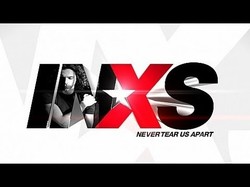 WE are almost at the second anniversary of the airing of Never Tear Us Apart, the Australian telemovie/dramatisation of the story behind INXS. In addition to documenting the trials and tribulations of what was perhaps Australia's biggest commercial music act of all time, the drama remains a testament to just how powerful television remains as a taste maker. Back in February 2014, the Seven network in Australia created hysteria in airing a two part series which was created with the input of the band and the band's longtime manager Chris Murphy. It's no coincidence how prominently Chris Murphy features in the program. It was a light, made for TV special which beyond charting the band's rise documented how Michael Hutchence's charisma was so powerful that it eclipsed interest in all the other band members. As a fan of the band even I found it hard to keep track of the other characters. Hutchence was INXS and the telemovie didn't seem to dispel the notion. But in hindsight, the 2 parter has proven to be an incredible vehicle for the rediscovery of INXS as a musical band. It's true that for almost fifteen years, from the end of the 70s to the early 90s, when they reached their commercial peak, INXS' star was one in ascendency. Their star burnt its brightest with the phenomenal success of 1987's Kick which sold over ten million copies. Now, there are certain things that define success in Australia. At the heart of them is the uneasy sentiment that the Australian media conveys when a monster gets too big. It's what feeds the Tall Poppy Syndrome which is a huge part of the Aussie mentality. You see, Australia, unlike the US demands that even its most successful people display humility and a sense of community at all times. Basically, if you reach the stratosphere of success in Australia, the mathematics demand that the media will try to cut you down a peg or two, in order to remind you of where you stand in the community. The teleseries milks that idea: it was perhaps part of the reason why the band eventually fell out of flavour with the local media. But I would say that it wasn't really the reason why the band eventually fell out of standing with Australian audiences. INXS maintained their musical influence for years before their commercial downturn. But that downturn coincided with the splintering of popular music in the early 1990s. By then there was no prevailing sound that dominated the charts. You were just as likely to have a number one with a pop record as you were with a rap, rock or country song. And for a band that repeatedly perfected rather than experimented with its sound, there wasn't a lot of novelty on offer almost twenty years on. Theirs was a sound that was never really reinvented until it became a clear, and perhaps slightly desperate attempt on their parts to reconnect with mainstream audiences long after it was clear that the magic of their formula had started to fade. I finally got around to watching the series last night here, and I enjoyed it, for one because a friend of mine was in it, playing a journalist (hi Maria!) and she got the chance to be part of a crack about Adam Ant which I know would've made her day. The choice to use original INXS recordings throughout was genius as was the idea, if overused, of using actual crowd footage from some of INXS' most energetic gigs. Their early 90s Wembley gig is electrifying to watch. If you ever want to know where all the Aussies are in London, just check and see if there's a touring Aussie band in town. But, well, overall it's your typical, made for Australian television fare even if there is a nostalgic air to it for the most part. It's interesting to note that for the better part of the nineties, INXS rarely managed to make a dent in the music charts, both before and after Michael's death. Album after album after X (1990) struggled, as did their singles. The malaise had set in by then, despite their incredible back catalogue and achievements. But since the airing of the tele-series, their greatest hits album, The Very Best has remained firmly lodged in the Australian album charts. It has barely left the charts after rocketing back to #1 on the back of the series being televised. And for a band whose creative output since the passing of Michael has gone unnoticed (a reality TV show to find a replacement for Hutchence and a revolving door of replacement singers never got them back into the hearts of audiences - and is strategically ignored in the series), consistent sales of the greatest hits album has led to it being certified 5x platinum. Those platinum awards, and the ongoing resurgence of their music is more testament to the power of television than anything else. Who knew that the old faithful idiot box could still be king in the internet age and that nostalgia continues to trumps innovation?
0 Comments
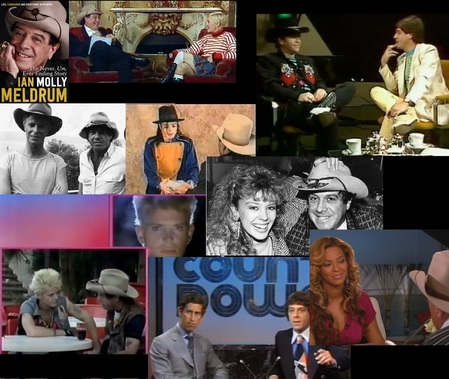 If you're an Aussie there are arguably only two terms that you ever needed to use in reference to the music industry and music journalism in general - at least up until the nineties. Molly or the Pop Guru. Despite his tendency to mumble, stutter and basically get all his words mixed up when he speaks, or perhaps precisely because of this, Ian "Molly" Meldrum endeared himself to Australia, and to the music industry from early on. He got his start in the sixties as a dancer, columnist and emerging figure on the Melbourne and London scenes. But his ability to endear himself to so many was his calling card and soon enough he was approached by the Australian ABC to come up with a youth oriented program. From there, the phenomenon that was Countdown was born. It was an hour long show in prime time which was a sort of a Top of the Pops scenario. It had a huge hand in making Australia, one of the least populated countries in the Western World, one of the ten biggest record buying markets around the world. Aussies today remain some of the biggest record buyers worldwide. Molly opened the doors to the Australian market to anyone that was remotely pop oriented, and although he tended to be on the supportive side, he rarely championed artists or acts that he didn't believe in. He broke artists like Madonna to their first mainstream audiences and a performance or appearance on Countdown would routinely drive record sales up by up to 400%. In fact one of the criticisms of the show was that it completely dominated the record industry in Australia, its playlist often defining the following week's charts. Countdown from its 1974 inception to its 1987 demise was a national institution and although it didn't make into the nineties and beyond, Molly endured. He's just had a fall in Bangkok, but Australia is not having any difficulty in jumping all over his enduring legacy. His long awaited autobiography The Never, Um, Ever Ending Story is currently a best seller and a TV miniseries on his life is about to hit the airwaves, preceded by a 3 disc compilation album which has already reached the Australian top ten. I read the 500+ page tome on the plane ride home. It was lightweight, nostalgic and very Countdown centric (it's focused mostly on his Countdown years). But there were a few really lovely moments such as the quote by Jim Keays of The Masters Apprentices. I used to have a go at Molly for always pushing lightweight pop stuff. But one day he told me that acts such as Kylie are the catalyst that got young kids in music. For a long time, I didn't see it, but he's absolutely right. And now I realise how important that is. He is fostering the acts that will get people involved in music. Molly and Countdown were huge influences on me growing up in Australia. I initially wanted to be a music journalist when I was younger and back then some of my friends used to joke that I was a pop guru in the making.
I never pursued that path, but I made sure to make numerous references in Vinyl Tiger to Molly, Countdown and the state of the music industry in Australia in what were my formative years. Get well Molly! You're a stumbling, bumbling national treasure. |
Dave
|
|
|
Dave Di Vito is a writer, teacher and former curator.He's also the author of the Vinyl Tiger series and Replace The Sky.
For information about upcoming writing projects subscribe to the mailing list. Dave hates SPAM so he won't trouble you with any of his own. He promises. |
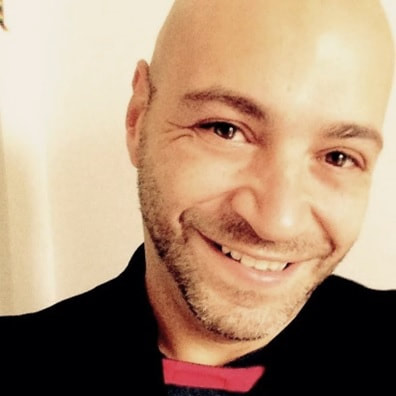
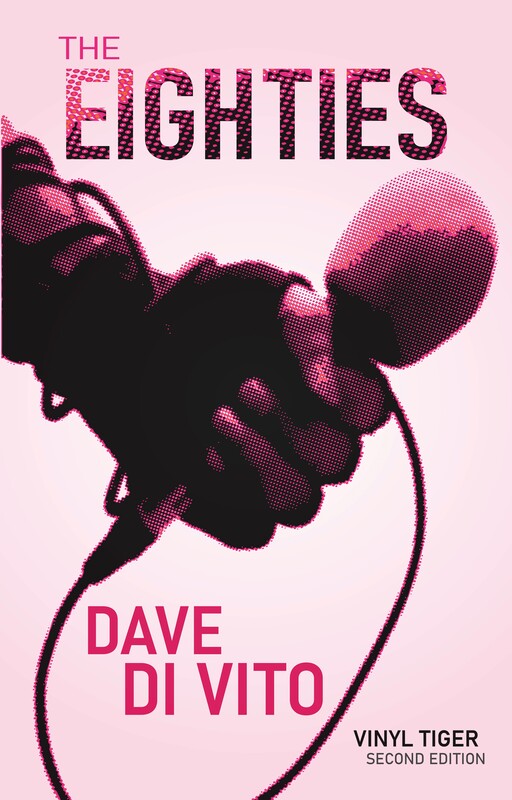
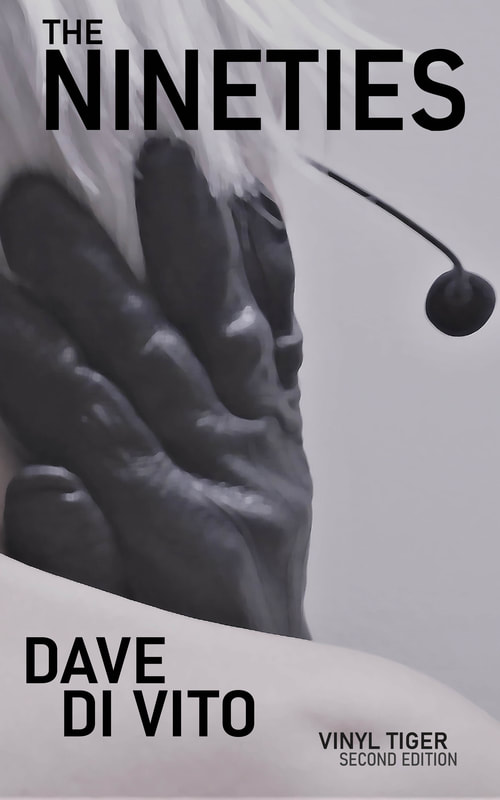
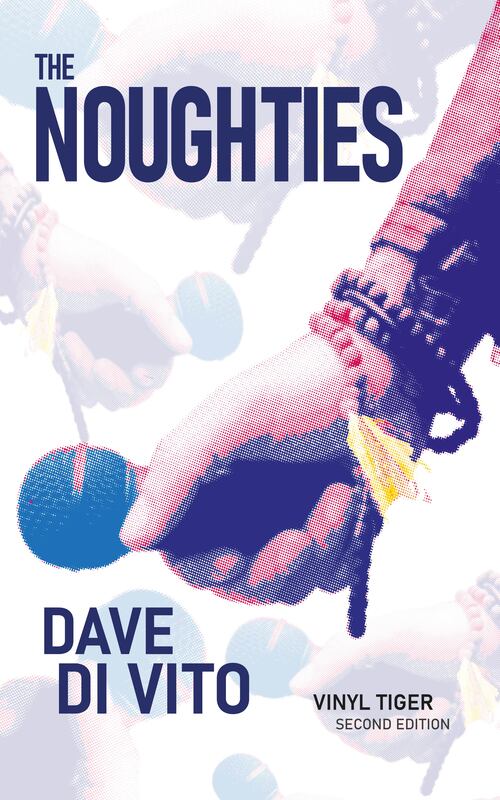
 RSS Feed
RSS Feed